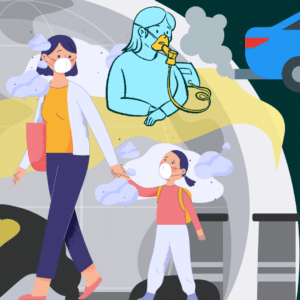Carbon Pricing: Reality and Myths
Canadians deserve a realistic carbon pricing (“tax”) discussion.
 Over 300 Canadian economists have signed a letter backing carbon pricing as having minimal economic impact, being a benefit to the climate, being the cheapest way to deal with climate change, and have confirmed that most families get more back.
Over 300 Canadian economists have signed a letter backing carbon pricing as having minimal economic impact, being a benefit to the climate, being the cheapest way to deal with climate change, and have confirmed that most families get more back.
This letter was also covered in the Toronto Star and the Globe and Mail (only over 200 had signed the letter at that time). Contrary to what you may hear the run on effects of the carbon prices do not change the fact that the carbon tax’s impact on inflation is minimal.
The same by the way is true of the proposed emissions cap on the oil and gas industry – it will not have a negative impact on the economy.
Meanwhile climate change is already costing Canadian households billions of dollars, and people in flood prone areas will increasingly have trouble getting mortgages for their homes.
That’s not including the impacts of air pollution on human health and Canadian lives, air pollution that carbon pricing has been shown to significantly decrease.
By 2018, “for every household in the BC metropolitan areas – after the carbon tax (was introduced) – we have a five per cent to 11 per cent reduction in local air pollution,” said Lorenzo Sileci, the author of the study and a post-doctoral researcher at the London School of Economics. – Global News.
And yes, fossil fuels are the cause of this pollution.
Numbers you may be hearing quoted from the Parliamentary Budget Officer’s report confirm that the impact on inflation is a fraction of a percent. References to numbers on the ‘costs to the economy’ are being used out of context and don’t account for costs of climate change (billions) or the benefits of a green economy.
Indeed, using the PBO’s carbon tax numbers this way would be like an early 20th century person calculating the costs of moving away from an economy based on horse-drawn carriages without including the benefits of having access to motorized transport. We deal with this more in the podcast below.
Carbon pricing also still works if you get more back by rebate. Here’s how:
- If you don’t switch away from fossil fuel use or use less, you still get back the rebate, which for most families is more than the cost.
- The tax is just a price signal and the rebate is there to make sure you’re not worse off financially. But you can gain even more financially by listening to the price signal and then using the money from the rebate to invest in things that lower energy use or are greener alternatives. Think of carbon pricing as a way to put a price on pollution and give the money in rebates back to low income Canadian households so they can go green since they will have the hardest time doing so.
You can listen to more on carbon pricing in the podcast below. We have also included even more information on common myths you might be hearing about carbon pricing and climate change below.
The fossil fuel industry wants people to believe it’s climate policy that costs Canadians, that climate policy is part of some big conspiracy, when its the industry’s actions and obscene profits which really make the difference.
Other Myths on Carbon Pricing and Climate Change
A renewable energy transition is completely possible and people won’t freeze because of it. We deal with this in a different podcast episode.
Yes, CO2 is a pollutant in the case of climate change and human caused CO2 causes climate change – it’s not just plant food.
No, volcanoes are not to blame for more emissions that humans and we should not be “taxing” volcanoes instead. Humans emit 100 times more CO2 than volcanoes.
When it comes to Canada’s wildfires last year it is NOT arson that’s to blame and the climate crisis made the spate of Canada wildfires twice as likely, read more in untangling climate misinformation around Canada’s raging wildfire.
Finally, Canada’s forests haven’t absorbed more carbon than they’ve released since 2001. Further, blaming other countries for climate change overlooks both Canada’s high per capita emissions and historical emissions that contributed to the climate crisis. We won’t inspire others to do more on climate change if we continue to contribute a lot more emissions per person than they do.
You can find more on other common climate myths at this website.
